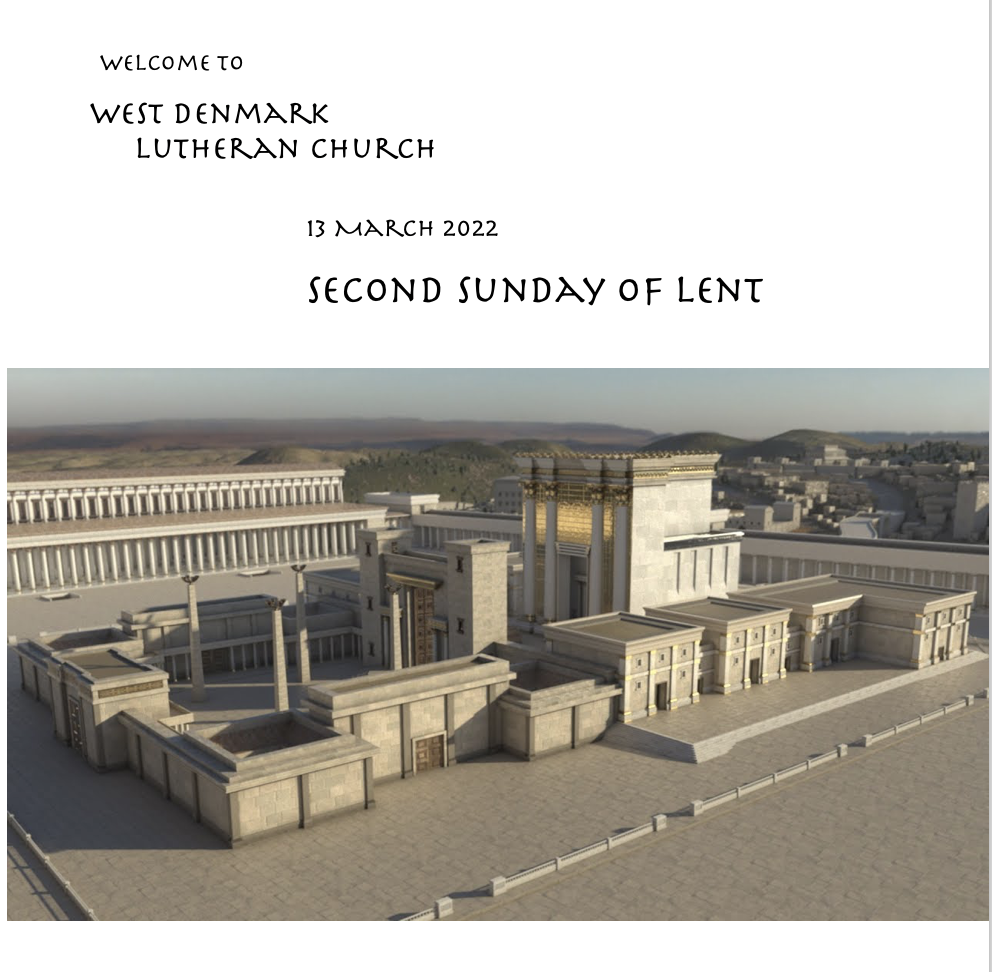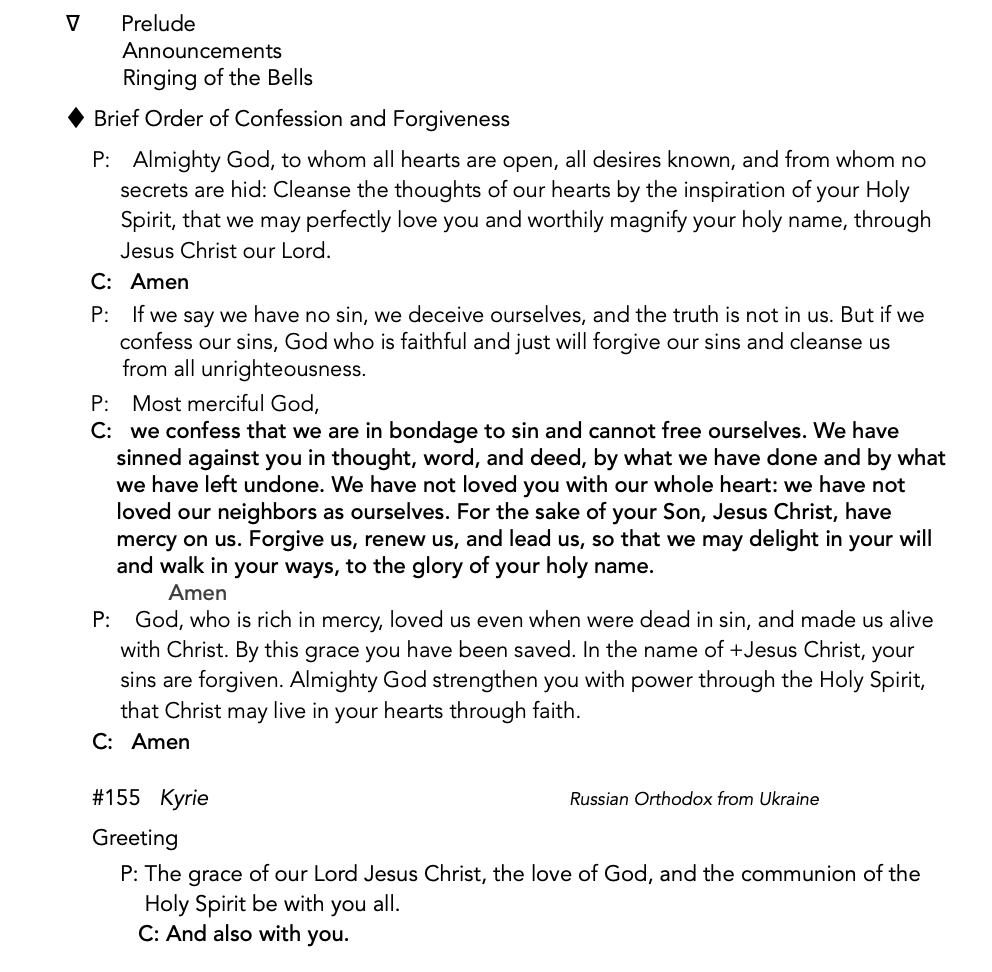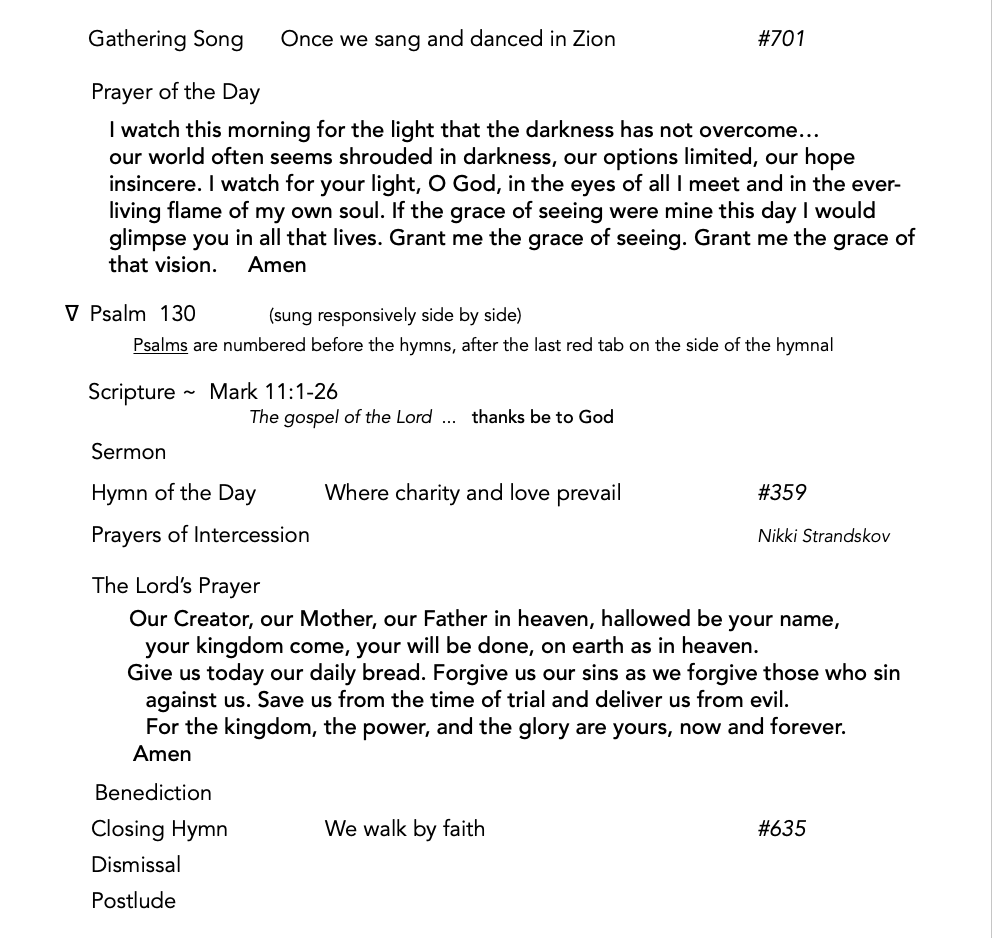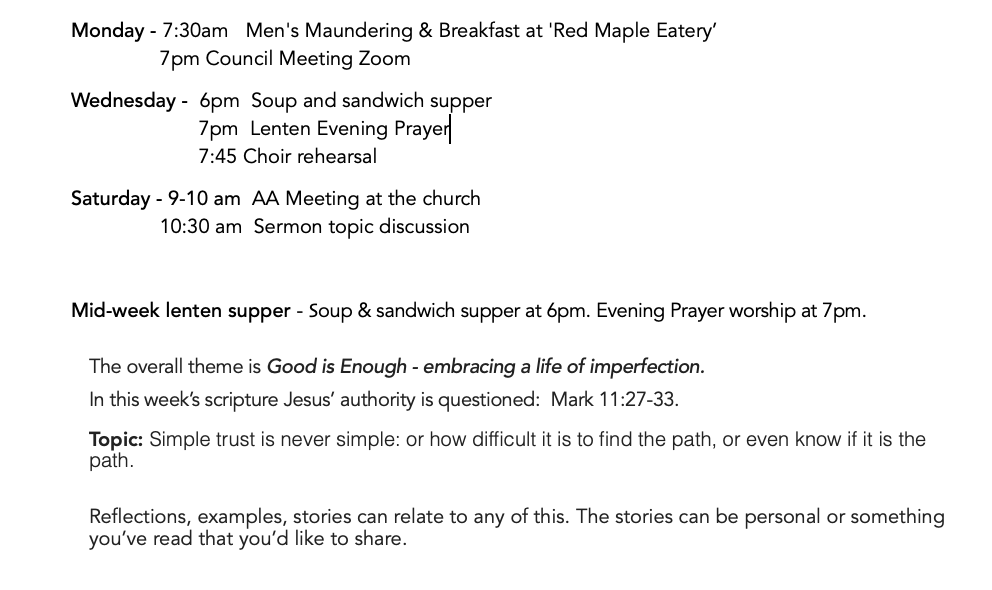Audio Recording




Mark 11
When they were approaching Jerusalem, at Bethphage and Bethany, near the Mount of Olives, he sent two of his disciples 2and said to them, ‘Go into the village ahead of you, and immediately as you enter it, you will find tied there a colt that has never been ridden; untie it and bring it. 3If anyone says to you,“Why are you doing this?” just say this, “The Lord needs it and will send it back here immediately.” ’ 4They went away and found a colt tied near a door, outside in the street. As they were untying it, 5some of the bystanders said to them, ‘What are you doing, untying the colt?’ 6They told them what Jesus had said; and they allowed them to take it. 7Then they brought the colt to Jesus and threw their cloaks on it; and he sat on it. 8Many people spread their cloaks on the road, and others spread leafy branches that they had cut in the fields. 9Then those who went ahead and those who followed were shouting, ’Hosanna! Blessed is the one who comes in the name of the Lord!
Blessed is the coming kingdom of our ancestor David! Hosanna in the highest heaven!’
11 Then he entered Jerusalem and went into the temple; and when he had looked around at everything, as it was already late, he went out to Bethany with the twelve.
12 On the following day, when they came from Bethany, he was hungry. 13Seeing in the distance a fig tree in leaf, he went to see whether perhaps he would find anything on it. When he came to it, he found nothing but leaves, for it was not the season for figs. 14He said to it, ‘May no one ever eat fruit from you again.’ And his disciples heard it.
15 Then they came to Jerusalem. And he entered the temple and began to drive out those who were selling and those who were buying in the temple, and he overturned the tables of the money-changers and the seats of those who sold doves; 16and he would not allow anyone to carry anything through the temple.
17He was teaching and saying, ‘Is it not written, “My house shall be called a house of prayer for all the nations”?
But you have made it a den of robbers.’
18And when the chief priests and the scribes heard it, they kept looking for a way to kill him; for they were afraid of him, because the whole crowd was spellbound by his teaching. 19And when evening came, Jesus and his disciples went out of the city.
20 In the morning as they passed by, they saw the fig tree withered away to its roots. 21Then Peter remembered and said to him, ‘Rabbi, look! The fig tree that you cursed has withered.’
22Jesus answered them, ‘Have faith in God. 23Truly I tell you, if you say to this mountain, “Be taken up and thrown into the sea”, and if you do not doubt in your heart, but believe that what you say will come to pass, it will be done for you. 24So I tell you, whatever you ask for in prayer, believe that you have received it, and it will be yours.
25 ‘Whenever you stand praying, forgive, if you have anything against anyone; so that your Father in heaven may also forgive you your trespasses.’
Things are not what they seem.
Jesus rides a colt into Jerusalem, exalted by crowds who sing straight from scriptures’ promise for a king, enacting the prophesy of Zechariah. They wave their branches and have a grand procession, but Jesus’ way, although strewn with palms, does not lead to a throne: It leads to a cross.
Cheered on by the crowd that lines the road, the procession enters Jerusalem, and Jesus goes straight on to the temple as we would expect him to do…. but he goes in, looks around at everything, and, seeing that it’s late, he leaves. He leaves the temple, leaves Jerusalem and goes a few miles away to Bethany for the night.
That’s odd. It’s so anticlimactic. I mean, the stage has been set with the colt and the crowds. He’s never ridden anywhere in their travels – this was a celebration, an event….and it just fizzled. I guess the colt was taken back to its manger. I suppose the crowds lost interest when he got to the temple? Went home to make supper? Why did Mark include this, it doesn’t seem to fit.
That’s because nothing fits our expectations. The adoring crowd is not what they seem to be. The next time we see them waving branches, they will be in garden of Gethsemane waving sticks and clubs while Jesus is arrested. The next time we hear them cry out, they will be calling for his death.
From now until the end, Jesus, who has, it seems, been constantly on the road, on foot and on the way for three years, stays between Bethany and Jerusalem, knowing that staying will be his death.
The next morning they head back to Jerusalem and we get this marvelous little story of the fig tree. Mark’s gospel gives us the most human characterization of Jesus. He was hungry. He sees a fig tree in full leaf – and, although he knows it’s not the season for figs, goes over to see if it has any fruit. And it doesn’t, so he curses it and moves on. When we see the fig tree again, it has withered and died.
Matthew’s gospel has smoothed things out. The triumphant entry into Jerusalem ends at the temple where Jesus drives out those buying and selling and overturns the moneychangers tables. After that they go to Bethany for the night and in the morning, on their way back to town, the fig tree story is told, but it withers immediately in their sight.
Mark’s telling might seem inelegant and out of order, but things are not as they appear.
When Jesus comes into the temple this second time, he enters the Court of Gentiles and it’s full of the commerce of the temple system. Booths of doves for sale, grain and oil, lambs and kid goats all to be sold for offerings – much more convenient than traveling with a pair of turtledoves or an extra jug of oil from Galilee. Roman coins had to be exchanged for the proper temple coins. This was the accepted practice.
So it seems Jesus was really hangry; cursing innocent fruit trees and upsetting all the vendors. What’s up?
Well. What’s up is that Jesus found the temple to be as barren as the fig tree. Mark tells one story within another to emphasize the point. Just as the fig-less fig tree withers after not living into its nature, so the temple was not performing its purpose. The Court of Gentiles was to be full of worshiping Gentiles, not commerce. In Mark, Jesus doesn’t purify or cleanse the temple making it fit for sacrifice, he upends temple practice making room for its proper functioning: to be ‘a house of prayer for all nations’, as it says in Isaiah. They weren’t praying, they were braying, they were hawking their wares. Gentiles were allowed only in the large outer court. They could bring or buy a sacrifice or exchange their coins, which would then be taken by priests through the gates into the Women’s Court, through another gate to the Israelite (men’s) Court, through the Court of Priests and finally to the sanctuary and altar. Worshippers were excluded from God’s presence categorically by perceived righteousness.
This is not the way of Jesus. God’s agency through Jesus was to bring God near, to make God known. Jesus teaches his followers not to rely on a sacred space for their prayers, but that through praying and practicing mutual care and forgiveness their gathering place, wherever it is, will be sacred.
The procession into Jerusalem that doesn’t seem to have followed to the temple wasn’t an oversight in Mark’s storytelling. It shows the separation of the people from worship. The fig tree wasn’t a whimsical inclusion, it implicates the temple leadership and their practices that had ceased to bear fruit. Messing up the Court of Gentiles’ commerce wasn’t done because Jesus wanted the temple to be more holy, it was done because the very people who needed connection to the God of mercy and life were being excluded. Faith is not transactional. God does not want burnt offerings and sacrifices, but an open and contrite heart. From the sacred place within each human soul, prayer and praise have power to transcend and transform. A temple, a church, an institution can easily get in the way, can get so accustomed to custom that it loses sight of what is living, what is needed, what is re-forming in the Spirit’s way.
Are we what we appear to be? Or rather, what do we appear to be – as individuals, as a community of faith, as Christians? Are you a pilgrim, prophet or priest? We are all servants to something – what cause or need do you serve? If you imagine looking back with the eyes of your future self, will you be content, satisfied, with what you’ve done with what you were given? You may not feel you have faith to move mountains, but is your faith enough to sustain you through times of trouble? Is it enough to guide you in decisions? Does it provide you with comfort and challenge? Are you able to pray, believing that you have already received, forgiving as you have already been forgiven? What more can you do with this one, beautifully imperfect life?